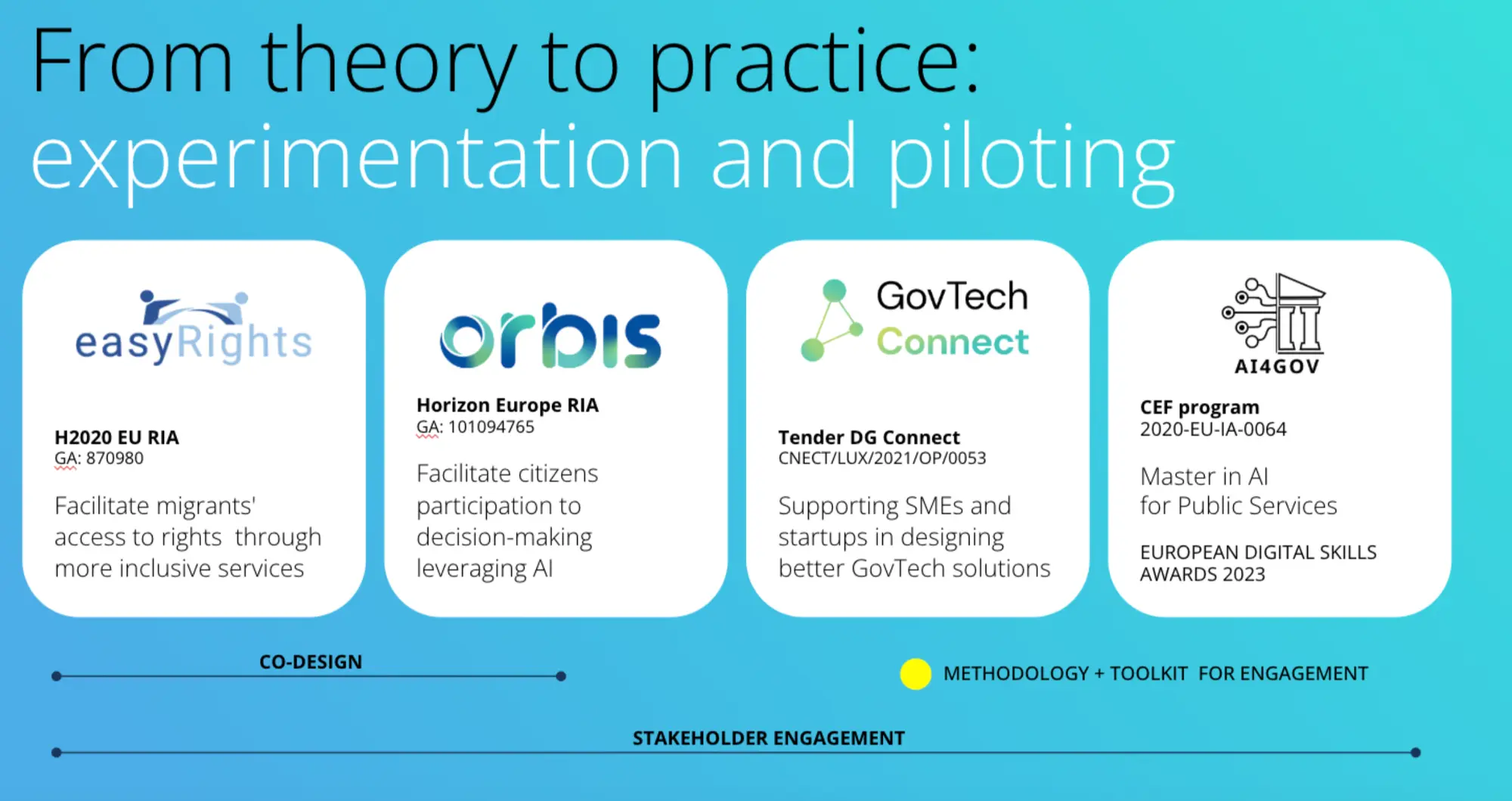On March 11, 2025, the Policy Learning Platform , a digital space created by the Interreg Europe programme, hosted a webinar on Citizen-oriented Innovations, focusing on the transformative impact of digital innovation on public services and urban policies. The session was meant to explore the essential shift towards more inclusive, efficient, and citizen-centric solutions, emphasising the role of service design, smart city initiatives, and co-creation processes in urban environments.
Ilaria Mariani, Researcher at the Department of Design of the Politecnico di Milano, and part of the coordination team of ORBIS held a keynote, exploring the dual aspects of citizen and stakeholder engagement in service design. The discussion broadened to reflect on the extensive experience of the research group of the Department of Design in engaging stakeholders and citizens across multiple projects. These projects addressed stakeholder engagement as either a process and methodology, a research subject, or a teaching topic, experimenting with multistakeholder settings.
The projects presented are:
- ORBIS: which enhances citizen participation in decision-making by leveraging AI (Francesca Rizzo, Ilaria Mariani, Sabrina Sacco);
- easyRights: which facilitates migrants' access to rights through more inclusive services (Francesca Rizzo, Ilaria Mariani);
- GovTech Connect: which supports SMEs and startups in designing better GovTech solutions (Francesca Rizzo, Marzia Mortati, Ilaria Mariani);
- AI4GOV: a Master's program in AI for Public Services, winner of the EUROPEAN DIGITAL SKILLS AWARDS 2023; it has since expanded into an Executive Master at Poli.Design, and scaled up into the ongoing AI4GOV-X project (Francesca Rizzo, Alessandro Deserti, Marzia Mortati, Ilaria Mariani).
Each project was examined to reveal how stakeholder and citizen engagement was facilitated and the resulting insights into effective participation strategies, both identifying possibilities and opportunities, as well as potential pitfalls and challenges that arise when citizens and stakeholders actively participate in shaping services.

